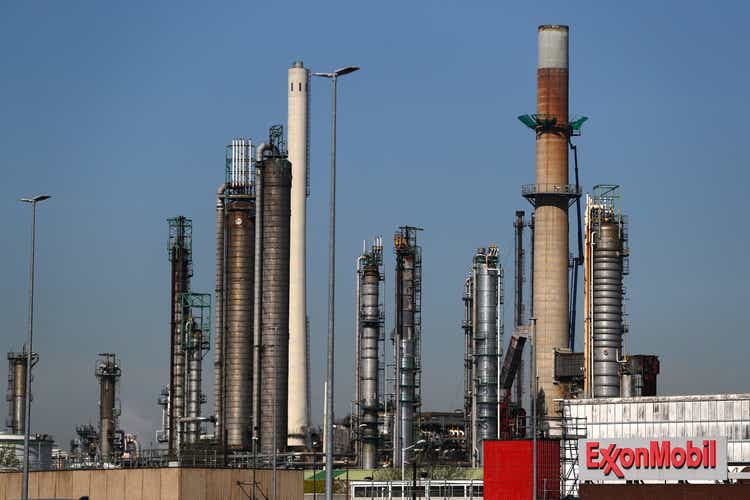
Dean Mouhtaropoulos/Getty Images News
Exxon Mobile (NYSE:XOM) is on the front line as petrochemical companies reject plans to limit plastic production, while more than 4,000 delegates and observers prepare to meet in Ottawa on Tuesday for United Nations talks on a potential plastics treaty that could end plastic pollution within the next two decades.
“The problem is pollution, the problem is not plastic,” said Karen McKee, product solutions manager at Exxon (XOM). Financial Timesadding that alternatives to plastic packaging could result in an even higher emissions footprint.
The oil and gas sector “sees plastics as the next opportunity for the industry… That’s really problematic,” countered John Duncan, co-lead of the Business Coalition for a Global Plastics Treaty.
Disagreements over how the 400 million tonnes of annual plastic waste should be managed have stalled negotiations.
Environmental groups want plastic production to be reduced by 75% below 2019 levels by 2040, and say recycling is not enough to reduce plastic waste, as only a small percentage of materials are actually recycled.
Countries such as Saudi Arabia and China, which have large petrochemical industries, and US-led trade groups such as the International Council of Chemical Associations, argue that production limits would lead to higher prices for consumers and that it would high energy intensity create alternatives to plastic.
If a treaty is finalized, it could be one of the most significant global agreements on the environment and emissions since the 2015 Paris Agreement.
ETFs: (XLE), (XOP), (VDE), (IEO), (PXE), (IYE), (CRAK)